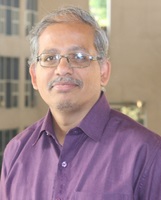Mathematics is a constantly improving branch of knowledge. It is influencing our day-to-day life;however, commoners do not understand its impact. Most people think that mathematics is a branch of knowledge that includes only techniques of calculation of numbers and of shapes and sizes of various objects. The general impression is that mathematics is difficult to learn, understand and apply in the real-life situations. For many people it is a brain twister, creating fear in the mind. In school education, most of the dropout students have apprehensions about mathematics and they rarely take up the subject again in their life. The actual fault lies with educationists, who don’t put forth the beauty and applicability of math. The subject is presented in such a way that most of the students find it complex and intricate. This leads to the question that what kind of mathematics needs to be introduced in the school level of education?
Generally,learning mathematics starts with the introduction to numbers and arithmetic operations, followed by introduction to geometrical shapes and their properties. The enhancement of learning process can be done by correlating these ideas with the day to day life of students. There is an obvious confusion in the mind of most students that mathematics is just limited to arithmetic. However, mathematics is much more than that. Thus, doing calculations very fast does not indicate that one is good in mathematics. There are people who have the ability of calculating fast and even create unique records, but are not recognized as mathematicians; although it is important that, to become a mathematician one should be able to identify create a close association with numerical calculation sand arithmetical operations.
Recreational mathematics is a branch of mathematics where mathematics meets entertainment and is useful in learning mathematics. It creates interest and motivates students to appreciate various concepts of mathematics. This kind of mathematics eradicates the fear of mathematics among students and helps them develop interest in the subject. Nowadays most educationists promote and incorporate recreational mathematics at school level. Just a trivia – in medieval India recreational mathematics was part of our education system.
Defining recreational mathematics may be difficult; but it encapsulates many things such as riddles, puzzles, games, numerical calculations, optimization techniques, the popular Sudoku problem etc. Though mathematics deals with abstract concepts which are difficult to understand, recreational mathematics helps students in the development of these concepts in a very interesting way. Recreational mathematics present many challenges for students to learn which can reinforce mathematical concepts and widen students’ thinking capabilities.
Many researchers and mathematicians have contributed to this branch. There are mathematicians who have shifted their focus from pure mathematics to the development of recreational mathematics. Raymond Smullyan is one such mathematician. This American mathematician devoted his career towards development of logical puzzles. This creates a strong background for computer programmers to build logic. Such puzzles encourage students to think logically, which will help them develop their programming abilities.
Mandar Vijay Datar (M.Tech. SET)
Assistant Professor (Engineering Mathematics)
Department of Engineering Sciences,
Hope Foundation’s International Institute of Information Technology, Hinjawadi, Pune








